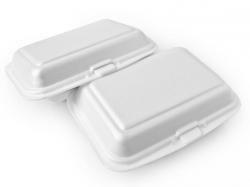American Chemistry Council: New York City Misses Opportunity To Recycle Foam Packaging
January 9, 2015 | 3 min to read

WASHINGTON — New York City decided to ban some polystyrene foam products and consequently will not include polystyrene foam in the city's curbside recycling program. This means that most alternative foodservice packaging and foam protective packaging will continue to be sent to landfills instead of being recycled. The following statement can be attributed to Mike Levy, Senior Director for the American Chemistry Council's Plastics Foodservice Packaging Group.
"We are puzzled by the City's decision to continue sending alternative foodservice and foam packaging to landfills instead of saving money by recycling foam at curbside. New York City could have surpassed Los Angeles as the largest city to recycle foam packaging at curbside, building on the experience of existing curbside recycling programs in other cities.
"Burying recyclable materials in landfills is not a sustainable solution for the environment or city residents.
"Based on New York City's decision, residents will not be able to recycle any foam packaging – meat trays, egg cartons, protective packaging, foam cups – at curbside, and the use of foam foodservice packaging will be restricted. This will neither increase recycling nor reduce litter.
"The decision by New York City illogically ignores an offer to recycle these materials at no cost to the city. Worse, it forces the use of other materials that will be sent to landfills, because food-contaminated paper or cardboard and paper take-out containers 'with heavy wax or plastic coatings' are not accepted for recycling in the city. These alternative foodservice packaging materials should be held to the same standard as foam packaging.
"There's a commercial demand for recycled foam packaging, including foodservice items – nearly 140 companies process or use the plastic material in the U.S. and Canada. A U.S. maker of foam foodservice packaging even offered to help the city expand its recycling program to include foam packaging, including foodservice and protective packaging, in part by providing a guaranteed market for the material that would save money for the city. Instead, the city will continue to spend money to collect and send this material to landfills, rather than explore a potential revenue stream.
"The restrictions on foam foodservice packaging also will harm the area economy. In New York State alone, four foam foodservice packaging companies with nine facilities employ 1,563 people and contribute $47.5 million in payroll and pay $2.3 million in state taxes. These companies make packaging used by government agencies, restaurants, grocers, schools, hospitals, and food establishments in the state and the metro area. Alternatives to foam foodservice packaging typically are between two and five times more expensive.
"We encourage the City to reconsider this decision and pursue readily available opportunities to recycle foam packaging."
www.americanchemistry.com/newsroom
The American Chemistry Council (ACC) represents the leading companies engaged in the business of chemistry. ACC members apply the science of chemistry to make innovative products and services that make people's lives better, healthier and safer. ACC is committed to improved environmental, health and safety performance through Responsible Care®, common sense advocacy designed to address major public policy issues, and health and environmental research and product testing. The business of chemistry is an $812 billion enterprise and a key element of the nation's economy. It is the nation's largest exporter, accounting for twelve percent of all U.S. exports. Chemistry companies are among the largest investors in research and development. Safety and security have always been primary concerns of ACC members, and they have intensified their efforts, working closely with government agencies to improve security and to defend against any threat to the nation's critical infrastructure.
Source: American Chemistry Council
